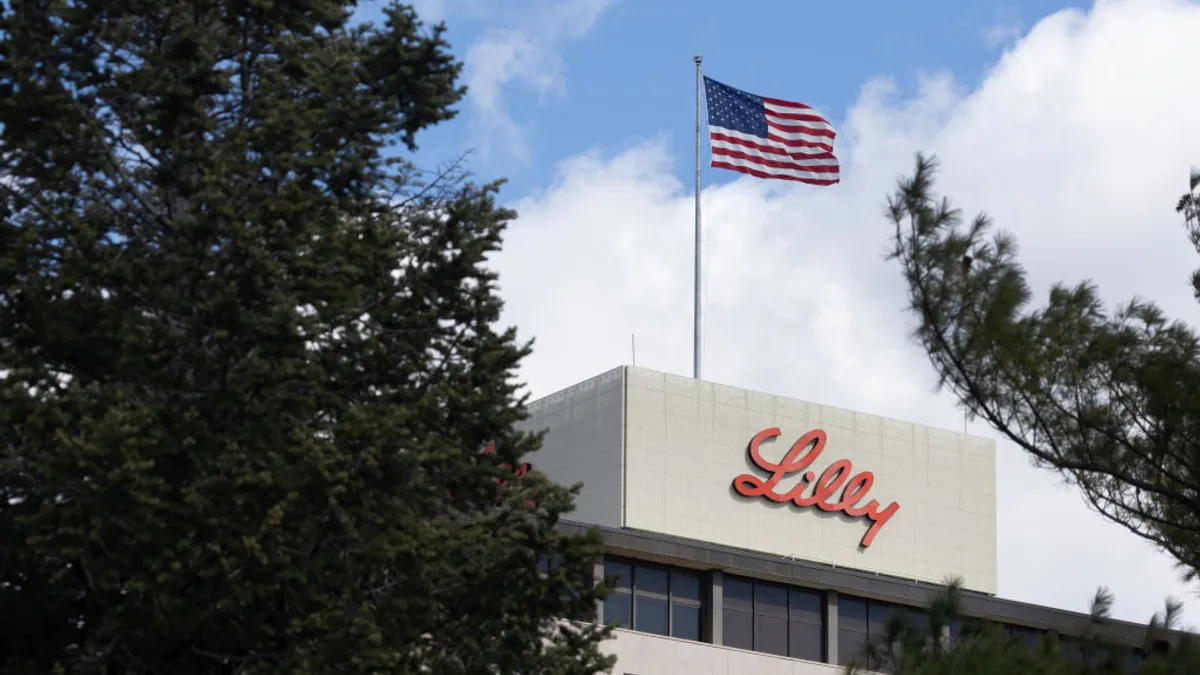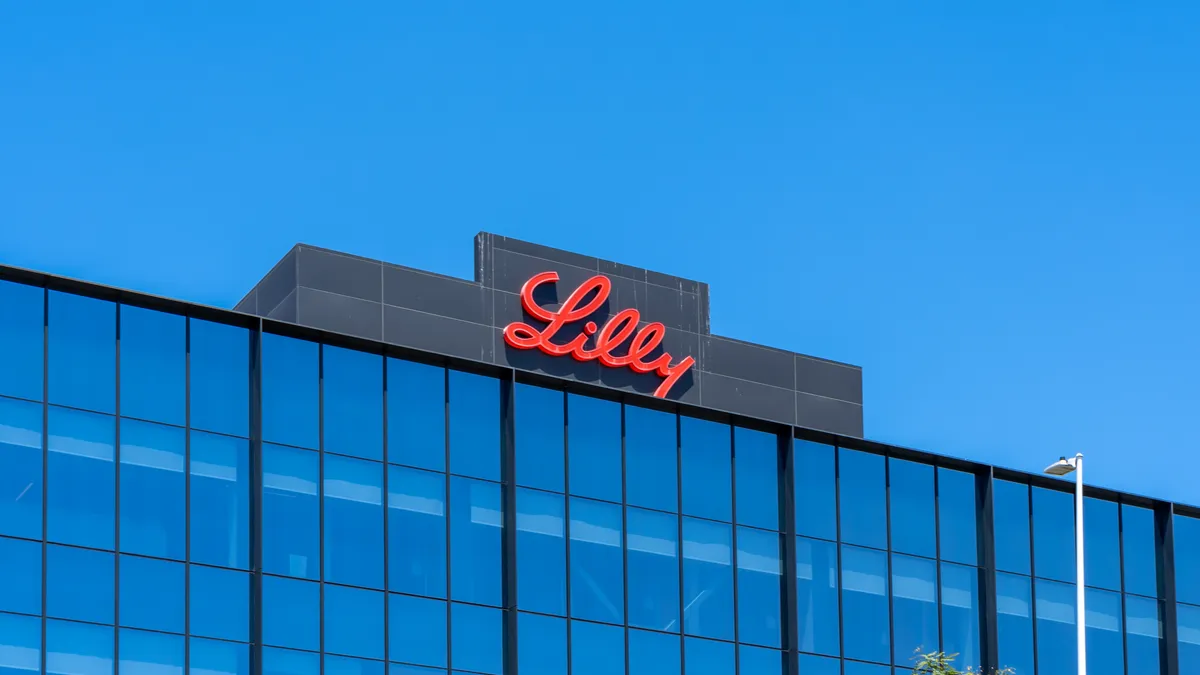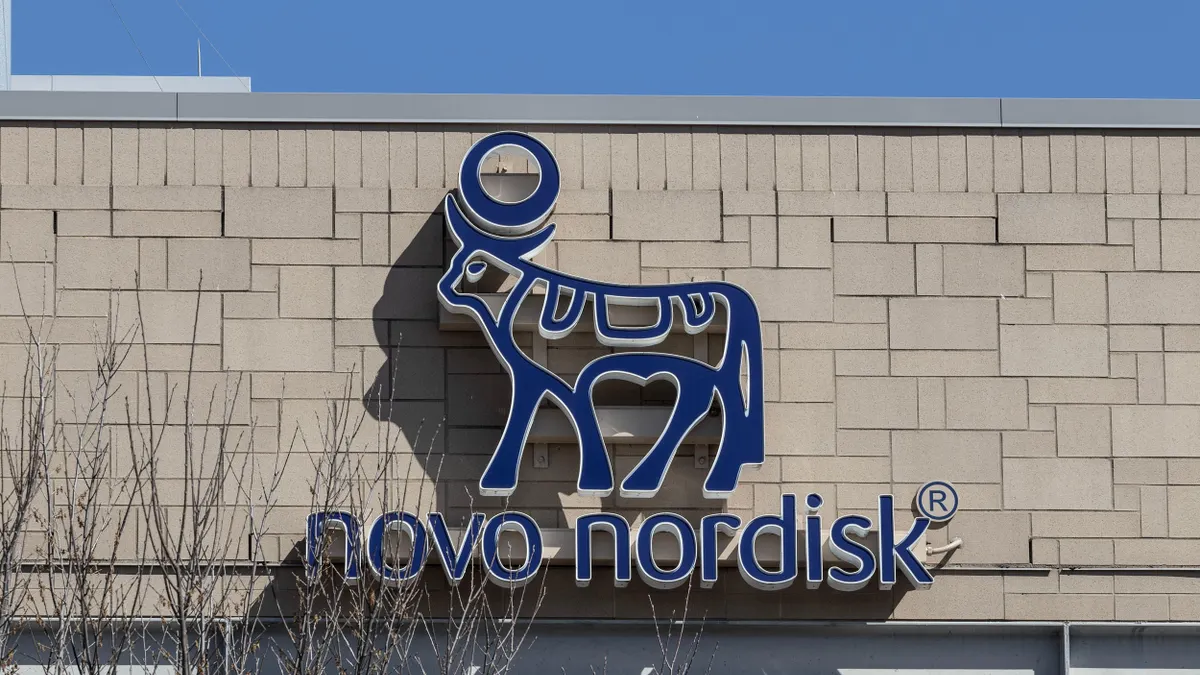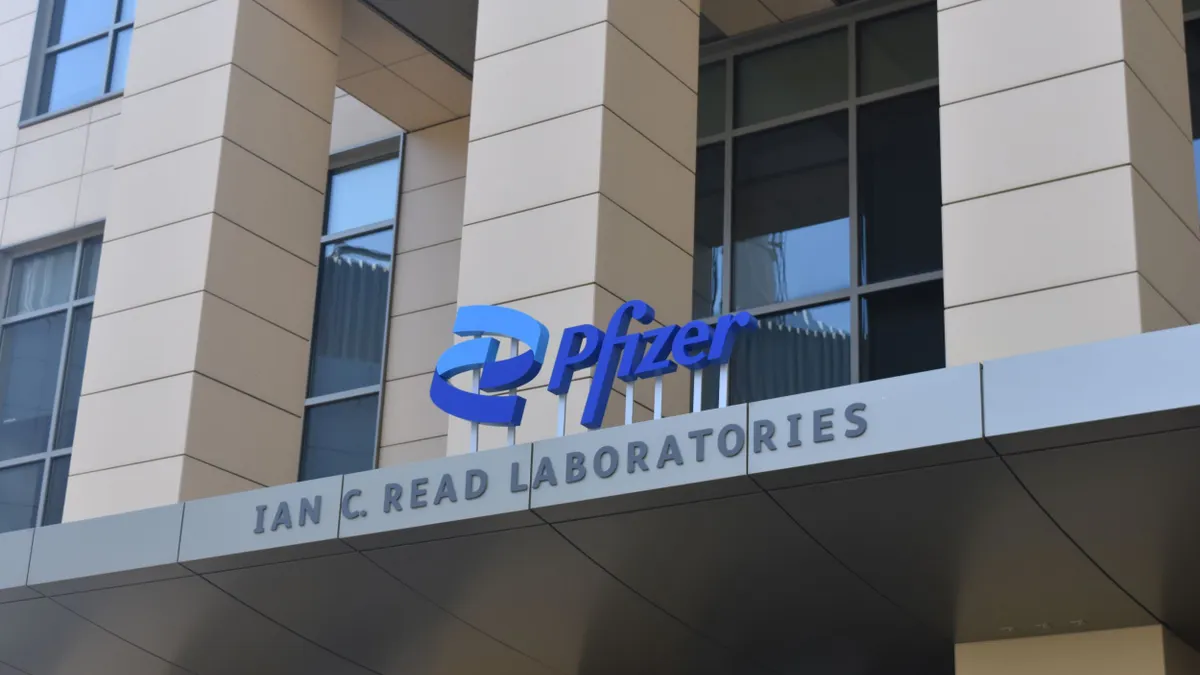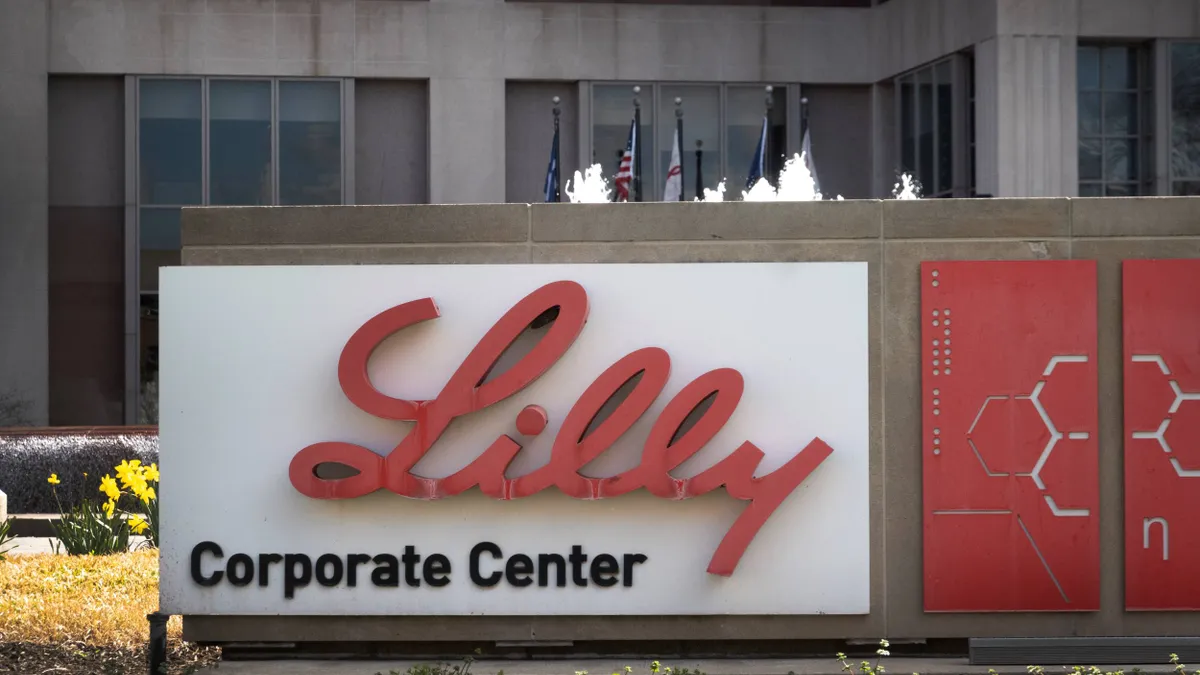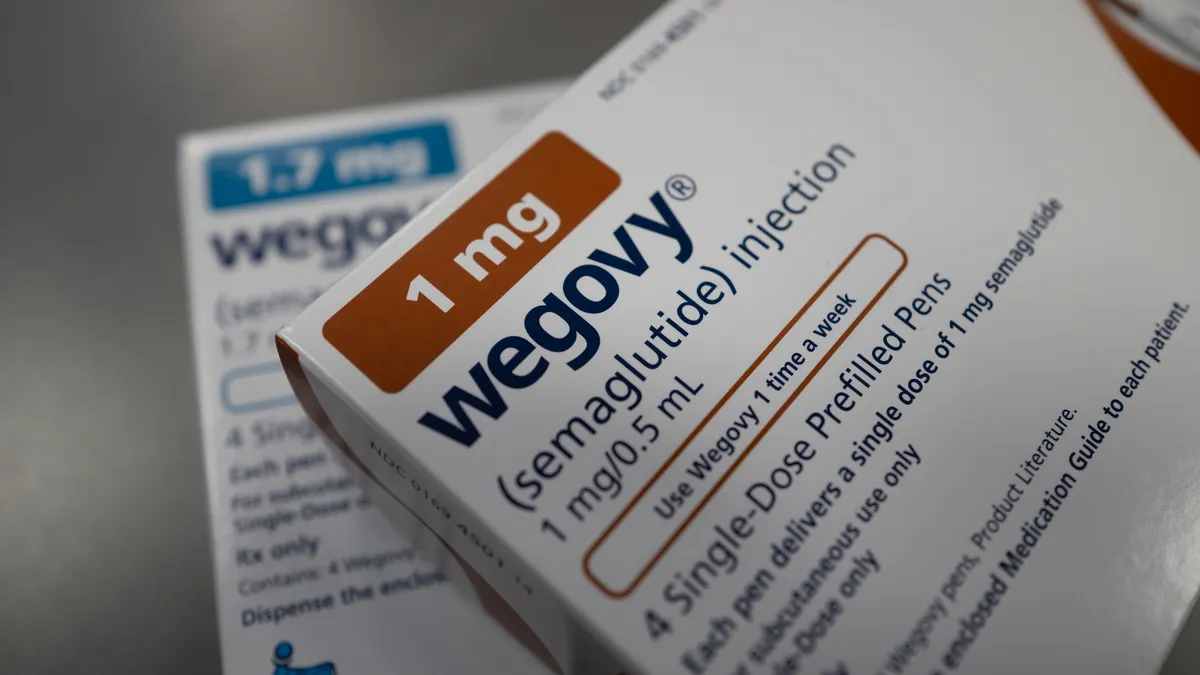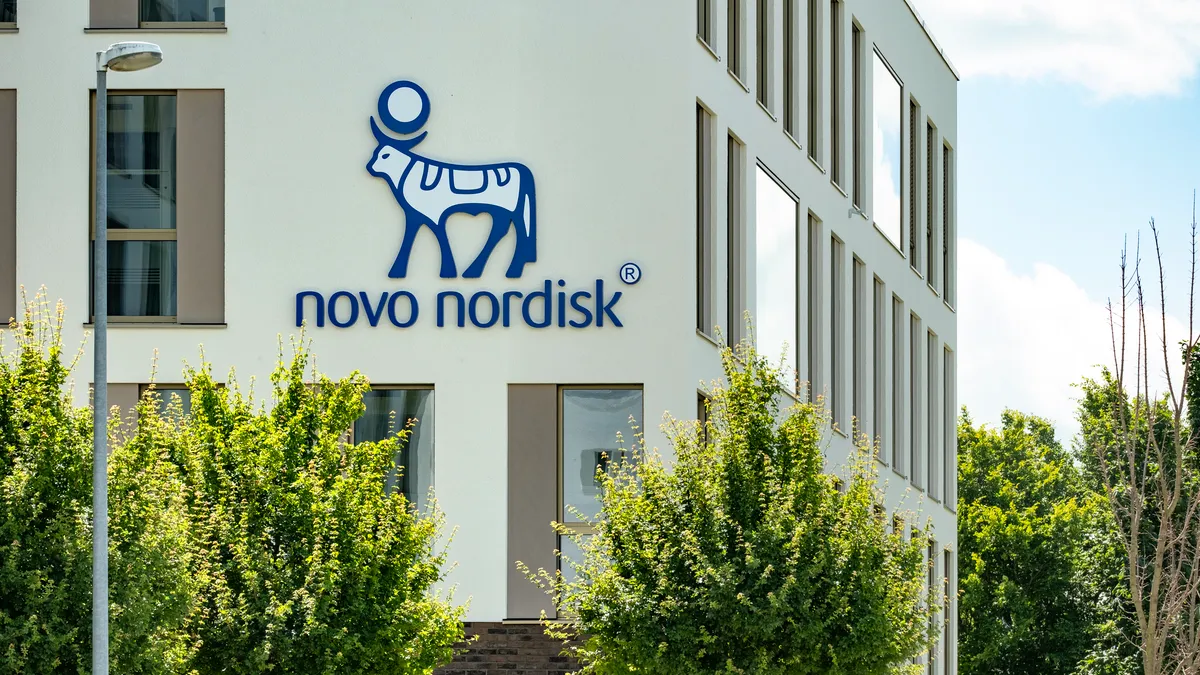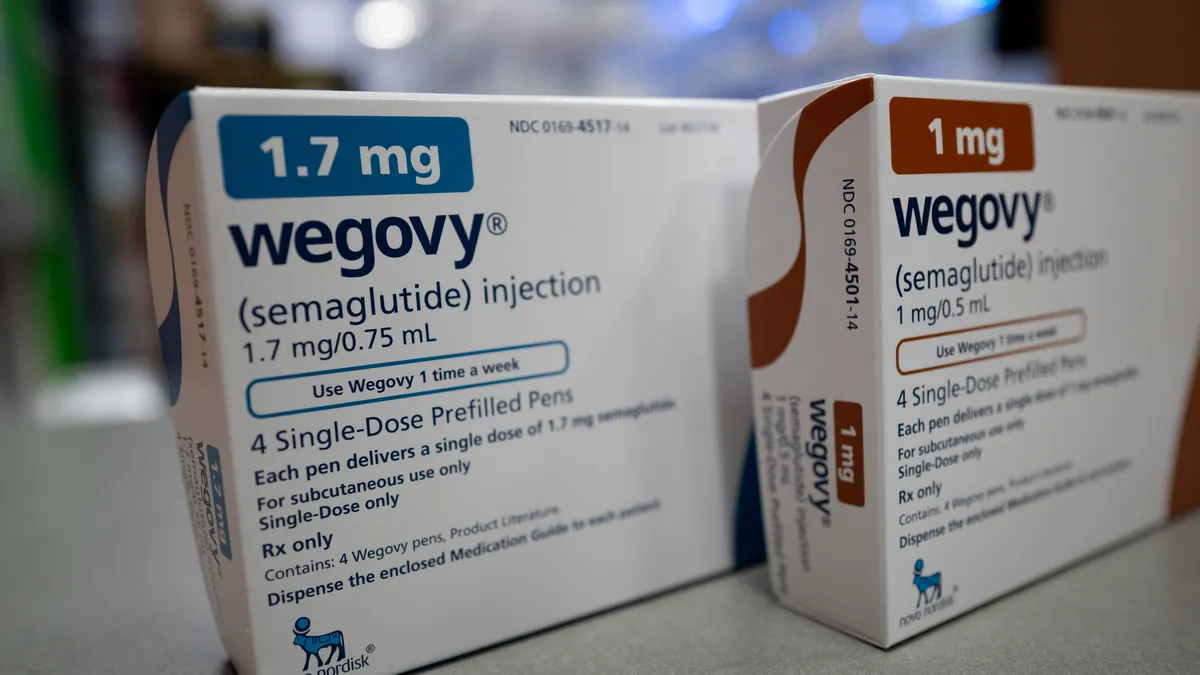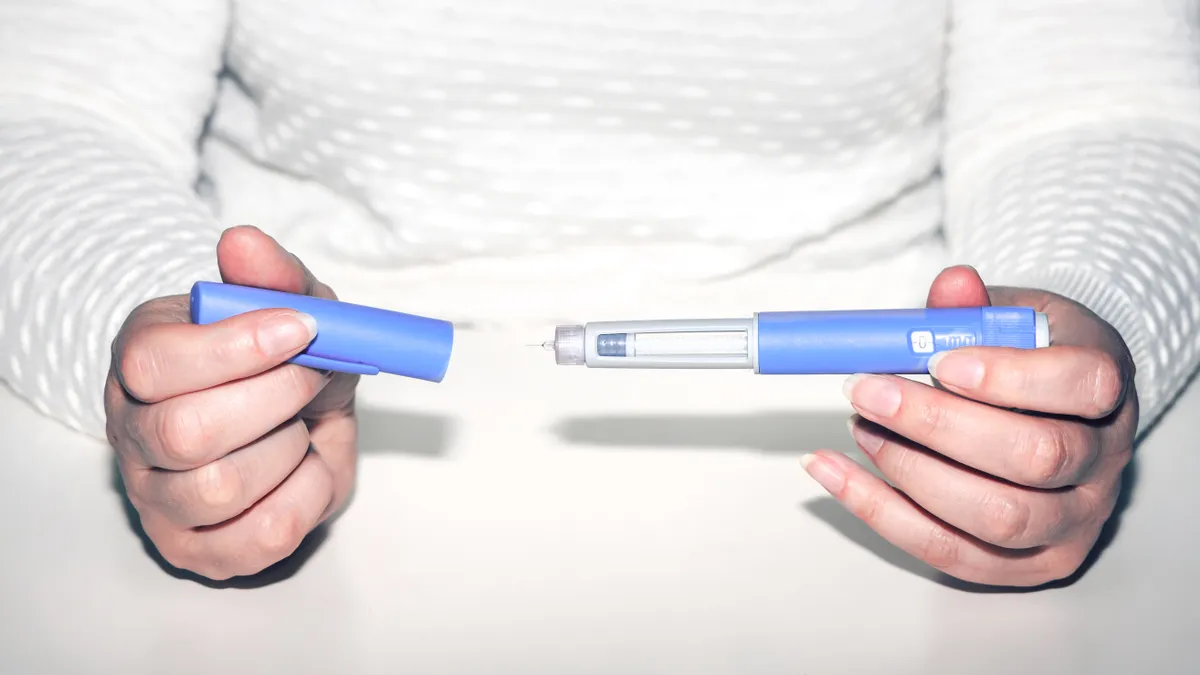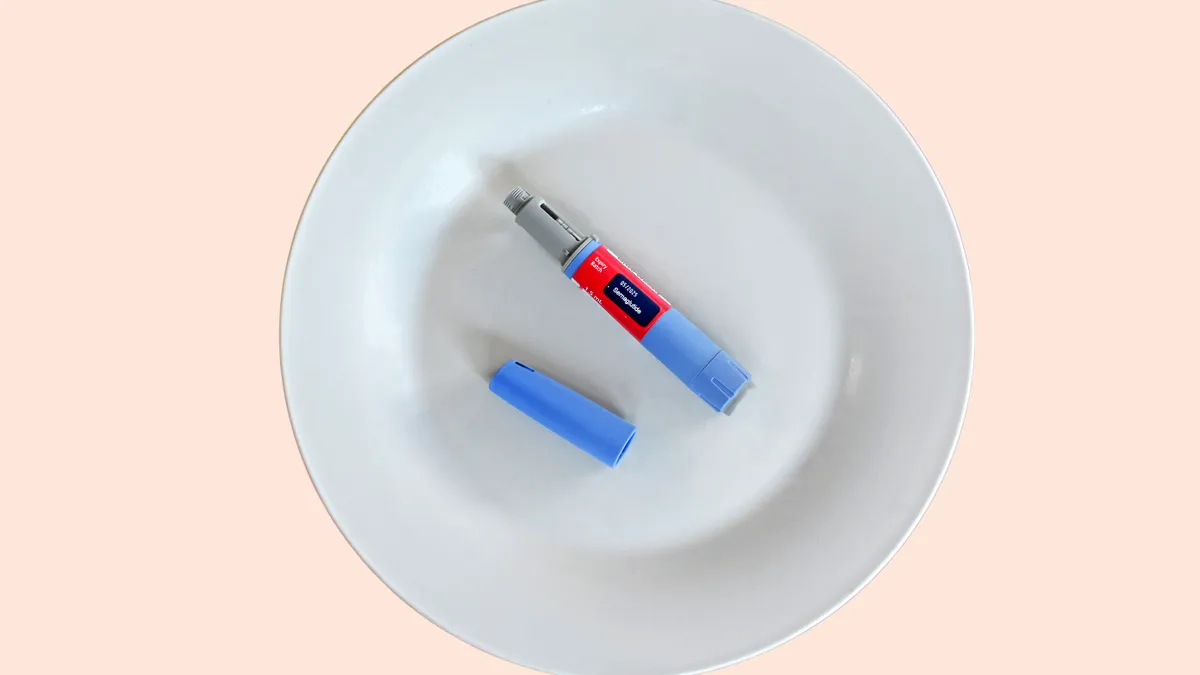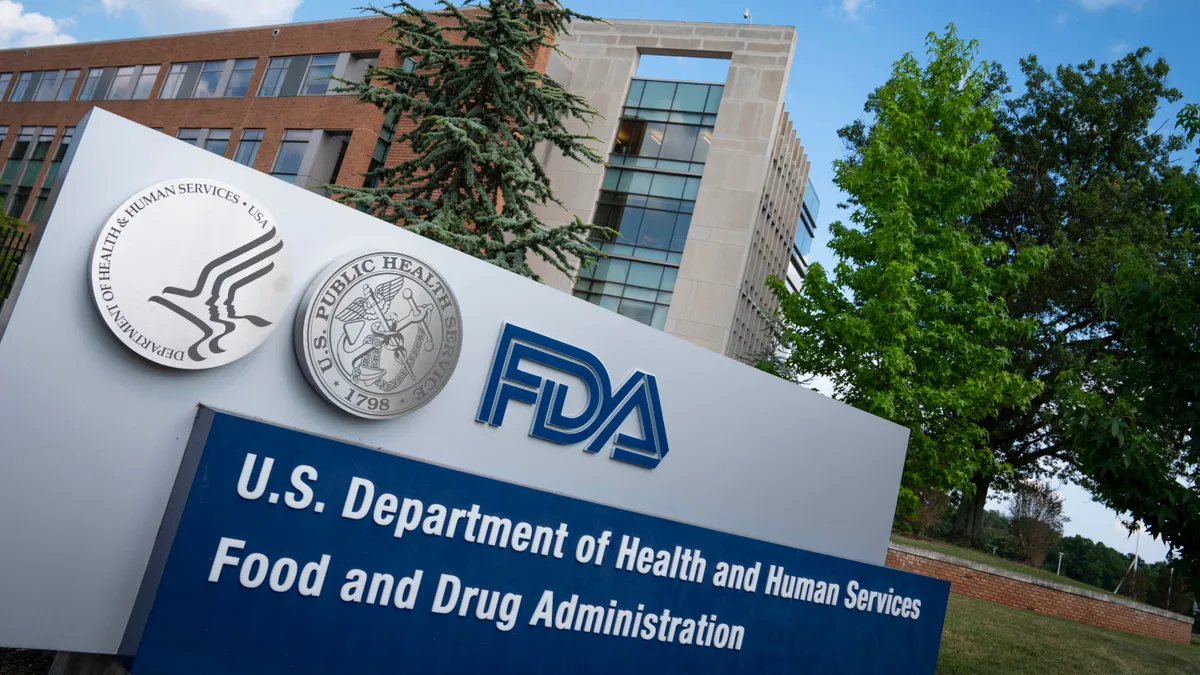Dive Brief:
- Eli Lilly has canceled one clinical trial of an experimental muscle-sparing obesity drug, citing “strategic business reasons,” according to a federal database. The study was one of two Phase 2 trials testing the drug, known as bimagrumab, alone or with Lilly’s marketed medicine in people with obesity. The now-halted study included Type 2 diabetics as well.
- In an email to BioPharma Dive, a Lilly spokesperson said company executives “routinely evaluate our clinical development programs to optimize the potential for each product” and noted that a separate trial involving non-diabetic people with obesity is still underway. The trial stoppage was first reported by Bloomberg.
- Bimagrumab is among the drugs designed to preserve muscle in people taking weight loss drugs like Zepbound and Novo Nordisk’s Wegovy, which can cut lean mass as well as fat. But at least one biotech has said that additive weight loss effects are an approval requirement, suggesting higher clearance standards have been established by the Food and Drug Administration.
Dive Insight:
Lilly, Novo Nordisk and the companies chasing them all want to build on the success of Zepbound and Wegovy with newer medicines that can address their limitations. Among those weaknesses are the loss of muscle that can occur in people taking obesity drugs, in part because a suppressed appetite and slower digestion leads them to consume less protein.
Medicines like bimagrumab, which target proteins that regulate muscle growth, are one potential solution. The hope is these drugs might protect muscle without interfering with the weight loss GLP-1 drugs are known for. In addition to Lilly, Regeneron Pharmaceuticals, Biohaven, Scholar Rock and Veru also have muscle-sparing obesity drugs in development.
Bimagrumab was originally discovered by Novartis and tested against rare muscle-wasting conditions like sarcopenia and inclusion body myositis. Novartis licensed it to biotech startup Versanis Bio, which launched in 2021 and envisioned it as part of obesity drug regimens. Lilly bought Versanis for up to $1.9 billion two years later.
The trial Lilly terminated was expected to enroll 180 people and finish in late 2026. The still-active study is listed in a federal database as recruiting patients who are receiving a placebo or several different dosing regimens of bimagrumab with or without Zepbound. It’s measuring how well the regimens stimulate weight loss and preserve muscle mass. Initial results are expected around April 2026, according to the database.
The study stoppage comes as the FDA appears to be indicating that drugs like bimagrumab may need to do more than just improve muscle composition. Veru earlier this week said the agency “now guides that incremental weight loss” over a GLP-1 drug alone “is an acceptable primary endpoint to support approval.” Veru’s shares fell 3% on Tuesday following that announcement, and another 3% Thursday.



